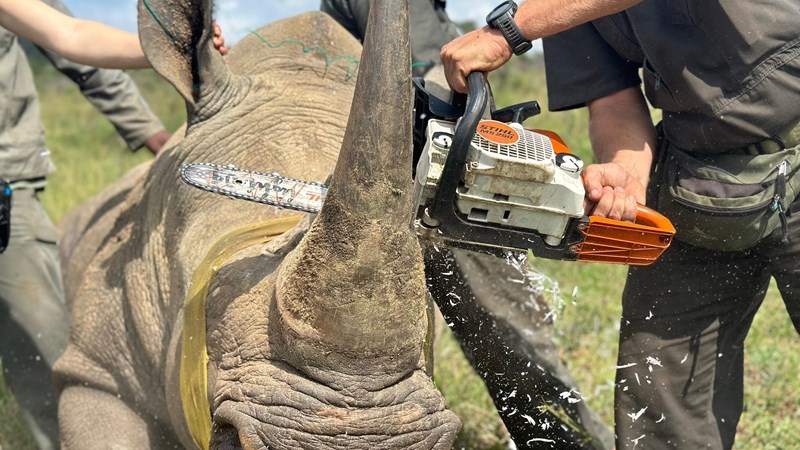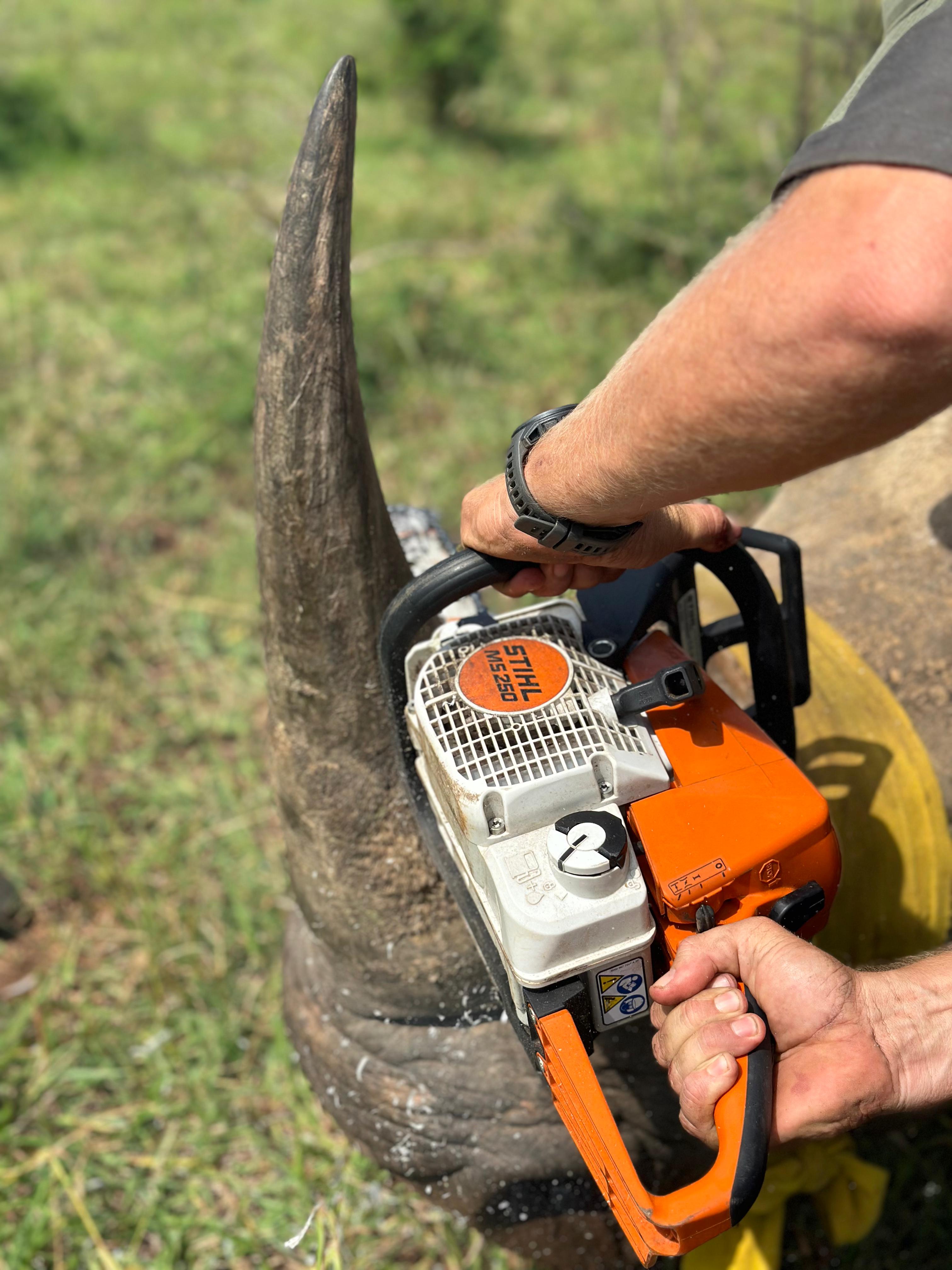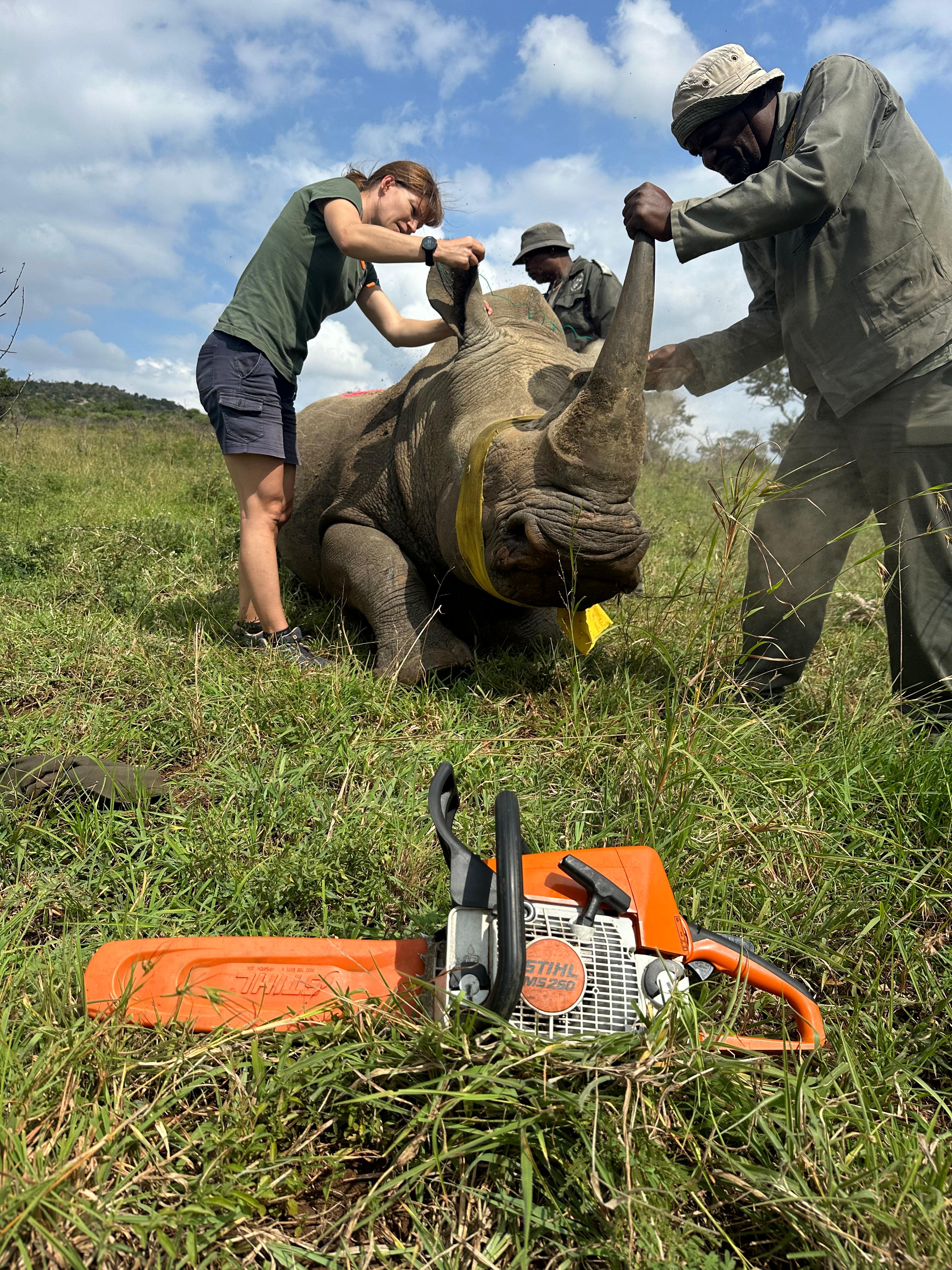South Africa
New programme launched to reduce rhino poaching in KZN─── 10:30 Mon, 06 May 2024

“If removing their horns is the only way we can save the lives of our magnificent rhinos, then it has to be done.”
To address the surge in rhino poaching incidents, a dehorning programme aims to protect the lives of rhinos from poachers.
The approved Ezemvelo KZN Guardianship Strategy for Rhinoceros aims to reduce poaching incidents and it complements other initiatives including:
- R11 million from the KZN province to erect a smart fence to cover a significant portion of the Hluhluwe iMfolozi Park (HiP) where poaching levels are high
- Increasing field ranger numbers from 45 to 88 and improving ranger living conditions
- Installing trackers in all vehicles
- Financial support of R40 million from the Department of Forestry, Fisheries, and the Environment to extend the area protected by the smart fence
- Improving relations with adjacent communities and
- Additional helicopter hours with night vision capability

Dehorning rhinos to discourage poachers. Picture supplied
The dehorning programme marks an important turning point in Ezemvelo’s anti-poaching efforts, in line with proven strategies implemented in other places, such as the Kruger National Park.
STIHL SA has contributed equipment to the World Wildlife Fund (WWF) South Africa to facilitate the dehorning process and guarantee its speed and safety. These include eight high-powered chainsaws, sharpeners, and protective chainsaw pants to be worn by those doing the de-horning, worth more than R100 000.
“If removing their horns is the only way we can save the lives of our magnificent rhinos, then it has to be done, albeit with a sense of sadness,” says STIHL managing director, Hayden Hutton.  STIHL SA donated equipment for the dehorning programme. Picture supplied
STIHL SA donated equipment for the dehorning programme. Picture supplied
“We hope this will ensure the survival of these species so that the next generation of humans can see rhinos in their natural environment, not only in picture books.”
Mail&Guardian reports that the Pilanesberg National Park has reported no poaching incidents since 2020 after it decided to dehorn its rhinos.
Although dehorning is not a solution, it forms part of a comprehensive approach to discourage poachers from targeting horned animals, said Ezemvelo’s chief executive Sihle Mkhize.

Dehorning can cost anything from R8 000 an animal. Picture supplied
Mail & Guardian also reports that dehorning can cost anything from R8 000 an animal, with repeats every 18 to 24 months. However, the costs can be proportionally reduced if more animals are dehorned during the same operation.













